-
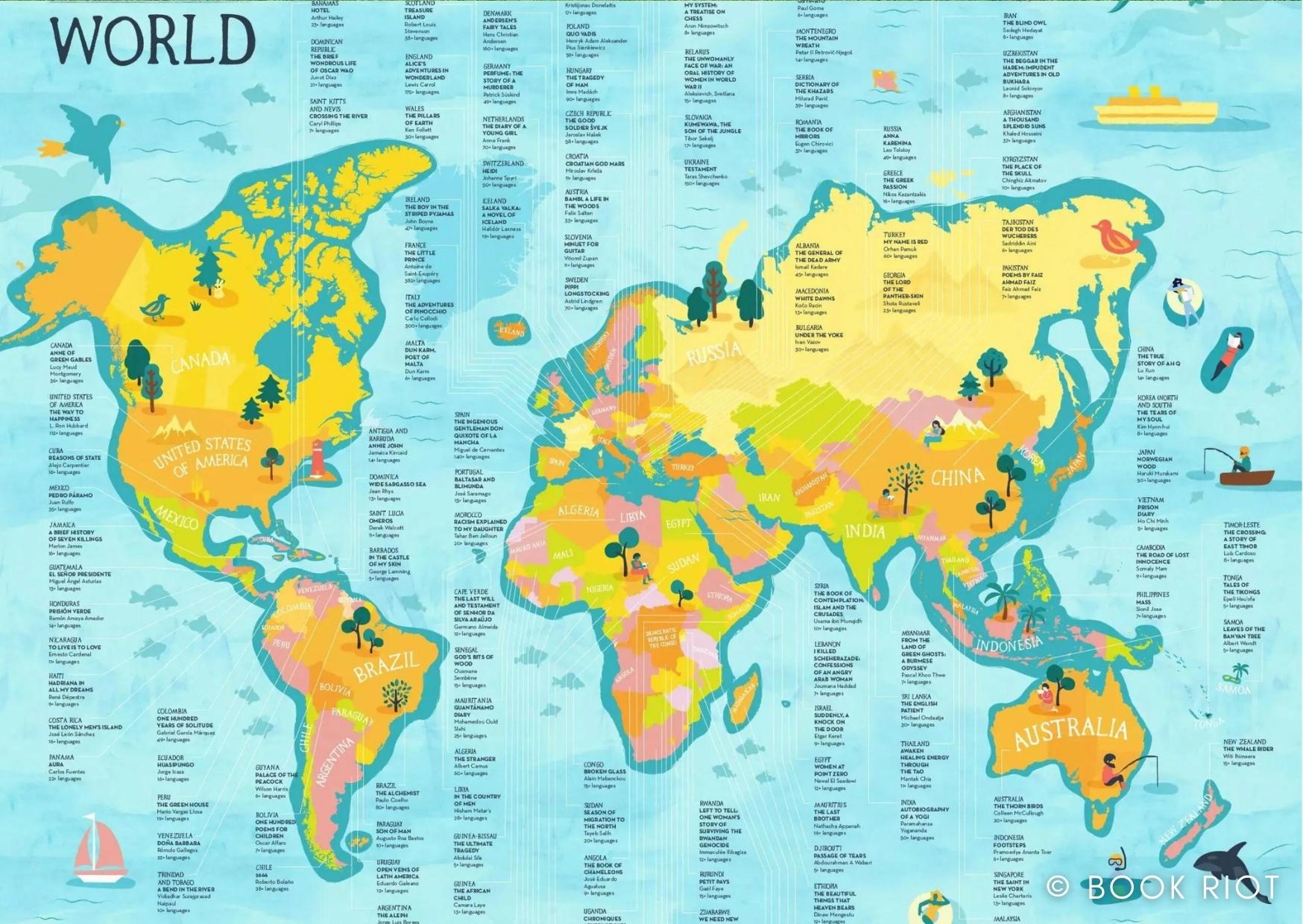
THE MOST TRANSLATED BOOKS FROM EVERY COUNTRY IN THE WORLD
THE MOST TRANSLATED BOOKS IN AFRICAAnother fable makes the list on the African continent: The Upright Revolution: Or Why Humans Walk Upright by Kenyan author Ngũgĩ wa Thiong’o has been published in more than 60 languages. These short tales that give insight into the human condition seem to have universal appeal, making them attractive as translation options.Angola: The Book of Chameleons by José Eduardo AgualusaBotswana: Maru by Bessie HeadBurundi: Petit Pays by Gaël FayeCameroon: Houseboy by Ferdinand OyonoCape Verde: The Last Will and Testament of Senhor da Silva by Araújo Germano AlmeidaCongo: Broken Glass by Alain MabanckouCôte d’Ivoire: Allah is not Obliged by Ahmadou KouroumaDemocratic Republic of the Congo: Tram 83 by Mwanza MujilaDjibouti: Passage of Tears by Abdourahman A WaberiEgypt: Women at Point Zero by Nawal El SaadawiEthiopia: The Beautiful Things That Heaven Bears by Dinaw MengestuGhana: The Beautyful Ones are Not Yet Born by Ayi Kwei ArmahGuinea: The African Child by Camara LayeGuinea-Bissau: The Ultimate Tragedy by Abdulai SilaKenya: The Upright Revolution: Or Why Humans Walk Upright by Ngũgĩ wa Thiong’oLesotho: Chaka by Thomas MofoloLiberia: The House at Sugar Beach by Helene CooperLibya: In The Country of Men by Hisham MatarMadagascar: The Palace by Claude SimonMalawi: The Boy Who Harnessed the Wind by William KamkwambaMali: Kaïdara: récit initiatique peul by Amadou Hampaté BâMauritania: Guantánamo Diary by Mohamedou Ould SlahiMauritius: The Last Brother by Nathacha AppanahMorocco: Racism Explained to My Daughter by Tahar Ben JellounMozambique: Sleepwalking Land by Mia CoutoNigeria: Things Fall Apart by Chinua AchebeRwanda: Left to Tell: One Woman’s Story of Surviving the Rwandan Genocide by Immaculée IlibagizaSenegal: God’s Bits of Wood by Ousmane SembèneSierra Leone: Long Way Gone: Memoirs of a Boy Soldier by Ishmael BeahSomalia: Desert Flower by Waris DirieSouth Africa: The Hobbit by J. R. R. TolkienSudan: Season of Migration to the North by Tayeb SalihTanzania: Paradise by Abdulrazak GurnahUganda: Chroniques Abyssiniennes by Moses IsegawaZambia: River God by Wilbur SmithZimbabwe: We Need New Names by NoViolet Bulawayo
-
- 2,255
-
- 1 September 2021
-
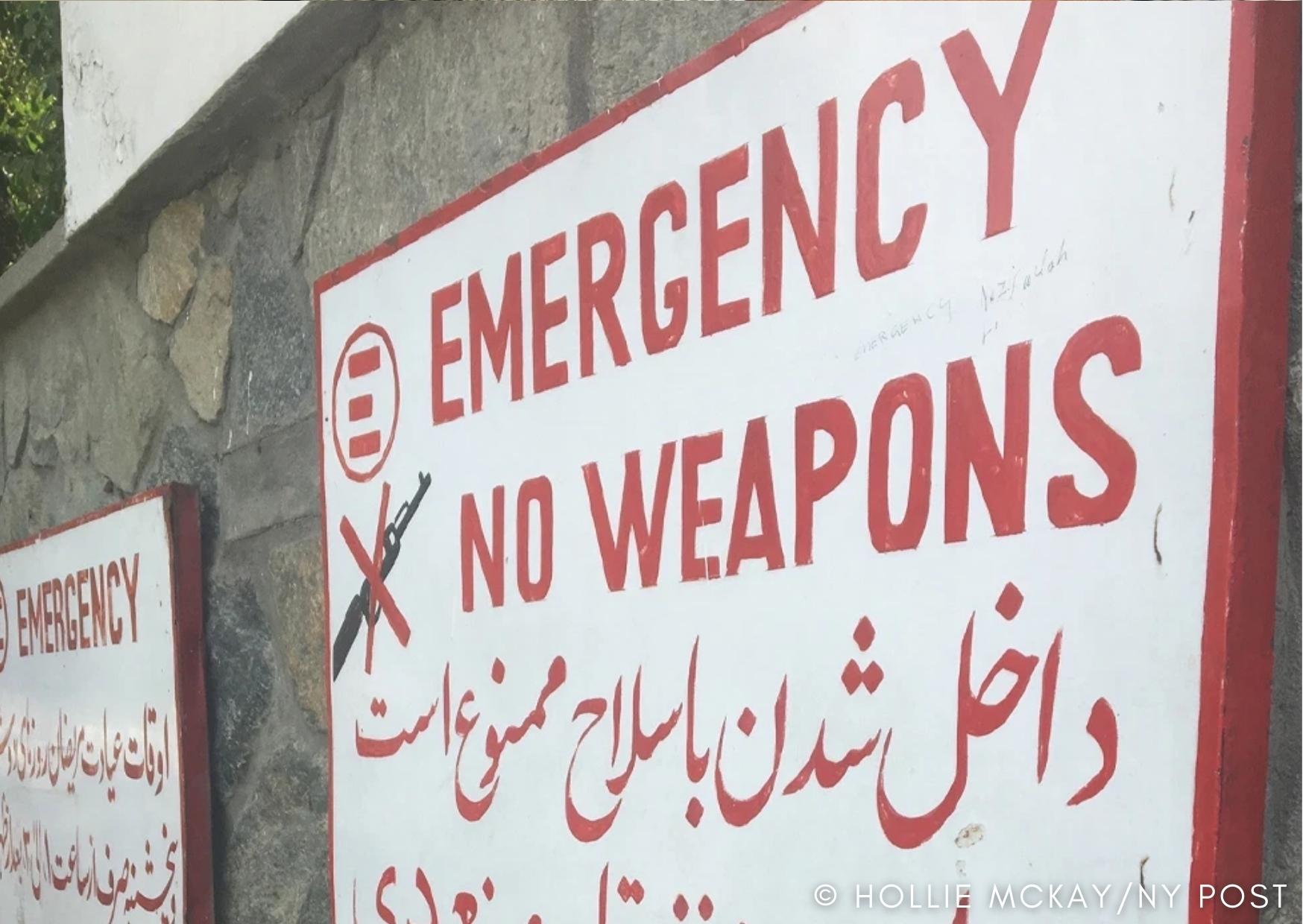
Where Kabul airport attack victims went for lifesaving treatment
A row of stretchers lined the front of the crammed street outside of Kabul’s Emergency hospital on Thursday night, as panicked faces waited and wailed in the immediate aftermath of the coordinated suicide attacks that ripped through the already on-edge Afghanistan capital.The majority of patients were rushed to the starkly red-and-white facility, formally known as the Surgical Center for War Victims and operated solely by the Italian non-governmental organization (NGO) Emergency, which is considered the most critical in Kabul.▲ Afghans wounded in the deadly attacks at the Kabul airport are treated at the hospital on Aug. 27, 2021./AP“We took care of the most urgent cases, and the surgeons and doctors reviewing the patients to make sure they are no missed injuries,” Dr. Gina Portella, Emergency’s Medical Coordinator in Kabul, said in an exclusive interview with The Post on Friday afternoon, acknowledging that the hospital was at first swarmed. “Many people were coming in, in a state of panic, and we just had to reassure them.”The attacks – carried out by the ISIS affiliate in the region known as ISIS-K – killed at least 95 people, including 13 US service members. A further 150 were wounded – and many remain in critical conditions inside the hospital.Portella noted that 38 patients from yesterday’s attacks are at the hospital and are receiving life-saving treatment. The youngest casualty is between the ages of 10 and 15, and the eldest is around 50 to 60. But for the staff, there is little time to ask questions or take down details – it’s about moving as quickly as possible through the hospital, which has a pre-determined protocol and outside area to set up for patients specifically to cater to large-scale bombings.That’s the chilling reality Afghans have dealt with for decades.Almost year-round, the Emergency hospital is brimming not only with the war-wounded but those caught in the crossfire of gang warfare and senseless criminal acts. A sign outside the hospital warns visitors in red letters: “No weapons.”And given that the facility has long been the closest advanced medical care for those in rural areas, many injured Afghans come from far and wide for life-saving treatment – sometimes walking for days in blistering weather conditions – and thus then grappling with severe infections on top of everything by the time they arrive.Portella acknowledged that before Thursday’s assailment, there was actually a brief reprieve from the constant violence after the Taliban takeover almost two weeks ago.“The situation became a little quieter; things seemed a little more stable,” she said. “Then suddenly, there was this attack in very crowded areas.”In my experiences visiting Emergency throughout the duration of the protracted US-led war, one-third of the patients were children — even babies — whose tiny bodies had been battered by bombs and bullets.Emergency, which is stylized in capital letters as EMERGENCY, was first started in 2000 by an Italian war surgeon and human rights activist, the late Gino Strada, while Afghanistan was under the Taliban’s rule. Strada is said to have directly negotiated with then-notorious Taliban leader Mullah Omar, convincing authorities to hand over a bombed-out kindergarten to be built into the hospital that it is today. The center has continued to operate through the ups and downs of mayhem and madness that has befallen the country.And regardless of how the situation unfurls, the EMERGENCY team said it is committed to staying and serving the Afghan people in need long after that final US plane has soared through the skies.“The job isn’t always easy,” Portella added. “But I see what is going on here, and I know the people really need this. The problems here have lasted so long; I have to try to do something.”
-
- 1,935
-
- 1 September 2021
-
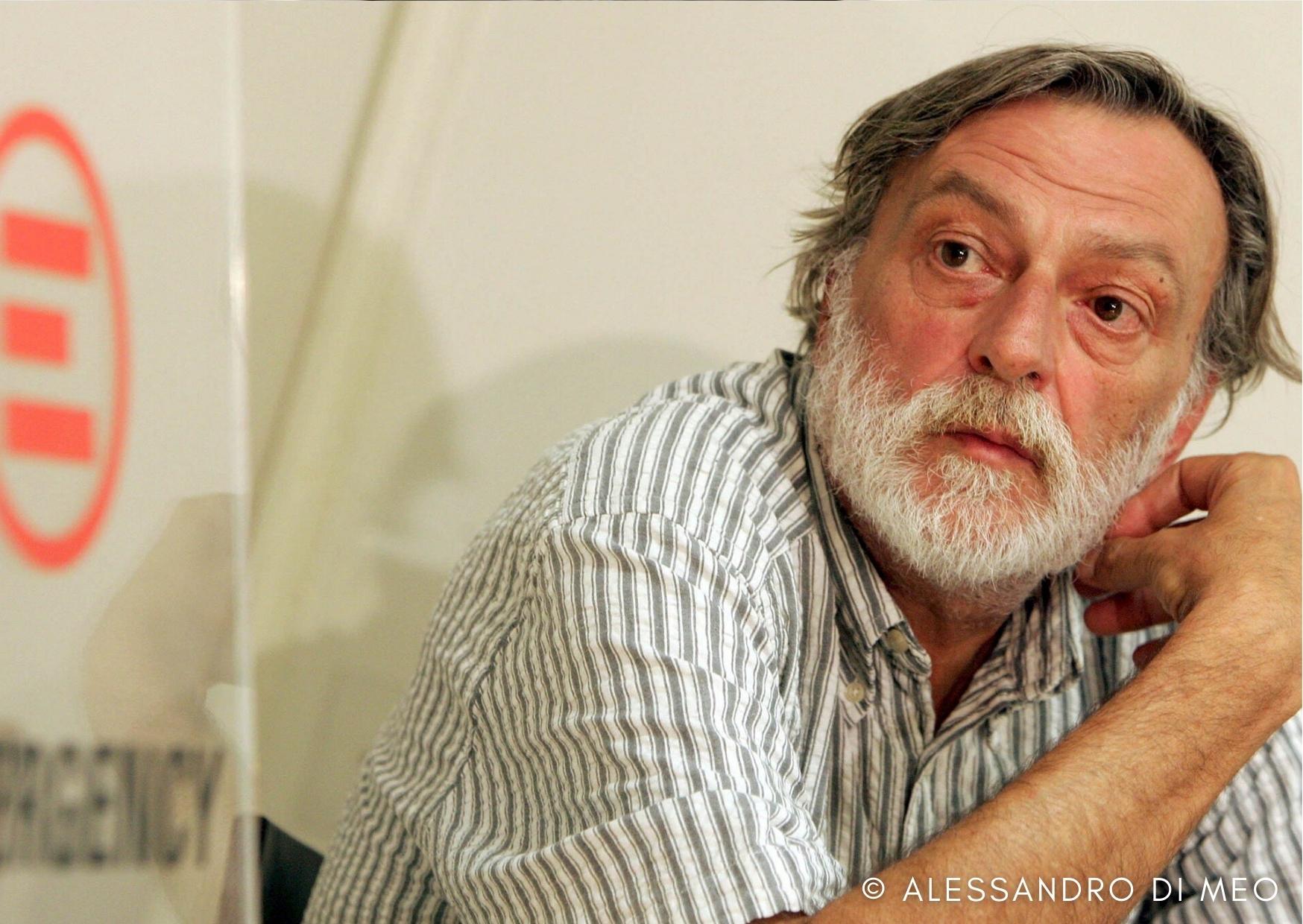
Dr. Gino Strada, Who Brought Health Care to the Desperate, Dies at 73
Dr. Gino Strada, an Italian surgeon and human rights activist who established a medical charity, Emergency, that says it has treated more than 11 million people in war-torn countries, died on Aug. 13 in Honfleur, in the Normandy region of France. He was 73.His daughter, Cecilia Strada, announced his death on Twitter. She did not cite a cause, but the Italian news media reported that he had suffered from heart problems. Dr. Strada was in Normandy on vacation.Dr. Strada and his wife, Teresa Sarti, founded Emergency, which operates hospitals, rehabilitation centers, trauma clinics and other programs, often on the front lines of conflict, in 1994. He served as the organization’s executive director and public face.Since its founding, Emergency has worked in 19 countries, including Rwanda, Iraq and Yemen. It is now active in eight countries, including Afghanistan.Anyone requiring treatment is admitted to Emergency’s well-equipped hospitals, which are staffed by local residents and an international team. “We never ask, are you Arab or Kurdish or Shiite or Sunni; we just look after immediate needs,” Dr. Strada said about Emergency’s work in Iraq in a 2004 interview with The International Herald Tribune.“Health care is a human right” became the organization’s tenet.A 2012 article in The New York Times Magazine examined the suffering of people in the Afghan war by tracking patients in Emergency hospitals and clinics. “A patient is a patient. This is our rule,” an Emergency Afghan nurse was quoted as saying.Through Emergency’s hospitals and centers, Dr. Strada received a direct view of the devastating effects of war and its legacy of destruction, poverty and unexploded land mines. He was an outspoken antiwar activist, and his firsthand accounts from the front lines often challenged the official narrative.“There isn’t a war where 90 percent of the casualties aren’t civilian,” he said in the 2004 interview.Emergency promoted a campaign that led to a ban on the production of antipersonnel land mines in Italy. It protested Italian military involvement in Kosovo, Iraq and Afghanistan. It is the driving force behind the African Network of Medical Excellence, whose aim is to strengthen free high-quality health systems in Africa.Last year, Emergency joined the “People’s Vaccine” campaign, an assembly of health and humanitarian associations and individuals lobbying to ensure that free Covid-19 vaccines are made available to all.On the day he died, as Taliban forces advanced in Afghanistan, the Turin daily La Stampa published a front-page opinion article by Dr. Strada, who had lived in the country off and on for seven years.“We said 20 years ago that this war would be a disaster for everyone,” he wrote. “Today, the outcome of that aggression is under our eyes: a failure from every point of view. More than 241,000 victims and five million displaced.” Afghanistan, he wrote, is “a destroyed country, and those who can will try to escape and endure hell to arrive in Europe,” while only arms manufacturers have benefited from the war.David Lloyd Webber, an Emergency spokesman in Britain, said on Wednesday that Emergency’s Surgical Center for War Victims in Kabul had been “extraordinarily busy over the last few days.”Emergency was conceived by Dr. Strada, his wife, and friends and colleagues around the couple’s kitchen table in Milan in late 1993. The organization’s first project was begun the next year, in Rwanda. Other projects followed, including a pediatric ward in the Central African Republic, a war surgery program in the besieged city of Misrata, Libya, and two Ebola treatment centers in Sierra Leone. Emergency also set up maternity centers, clinics and first-aid posts.In addition, it has projects in Italy to help people on the margins, often immigrants, and it established a campaign called “Nobody Left Behind” to aid Italians who lost jobs or businesses because of the coronavirus pandemic.The organization raised 48.6 million euros ($56.7 million) in 2020, mostly from individual donors, though in recent years funding from institutions and foundations has increased. From the start, Emergency has also depended on a network of volunteers, who raise money selling T-shirts, tote bags and other items in Italy’s piazzas and at events.In 2015 Dr. Strada won the Right Livelihood Award, an international honor given by a Swedish foundation, “for his great humanity and skill in providing outstanding medical and surgical services to the victims of conflict and injustice, while fearlessly addressing the causes of war.”In his acceptance speech, Dr. Strada called contemporary war “a persistent form of terrorism against civilian populations” in which people are maimed by bullets, shrapnel, antipersonnel mines and so-called toy mines. “Treating the wounded is neither generous nor merciful, it is only just,” he said. “It has to be done.”Gino Strada was born on April 21, 1948, in Sesto San Giovanni, an industrial town on the outskirts of Milan. His father, Mario, worked in the Falck steel plant in Sesto San Giovanni. His mother, Giuseppina Cesati, was a homemaker.He went to medical school at the University of Milan and specialized in emergency surgery. He spent four years in the United States, working on heart and heart-lung transplant surgery at Stanford and the University of Pittsburgh. He also trained at Harefield Hospital in England and Groote Schuur Hospital in Cape Town.He married Ms. Sarti in 1971; she died in 2009. He is survived by his second wife, Simonetta Gola, Emergency’s head of media relations, whom he married in June, as well as his daughter, who works for the charity ResQ-People Saving People, which operates a search and recovery mission for migrants in the Mediterranean.Dr. Strada began working with the International Committee of the Red Cross in 1988, serving people in Pakistan, Ethiopia, Thailand, Afghanistan, Peru, Djibouti, Somalia and Bosnia. That experience laid the groundwork for Emergency.He wrote or co-wrote three books: “Pappagalli Verdi” (“Green Parrots,” 1999), which explored his early experiences working as a surgeon in war zones; “Buskashì: Viaggio Dentro la Guerra” (“Buskashì: A Trip Inside War,” 2002), about Emergency’s efforts to reach Afghanistan after the war broke out; and “Zona Rossa” (“Red Zone,” 2015), which dealt with the Ebola outbreak.Ms. Strada learned of her father’s death while aboard the ResQ-People Saving People ship. In her announcement of the death on Twitter, she wrote that she could not respond to the many messages she was receiving because she and the crew were saving lives (84 migrants were recovered from the sea on that day).“It’s what he and my mother taught me,” she said.
-
- 2,403
-
- 26 August 2021
-

KALLON: ‘GENOA GOAL DEDICATED TO GINO STRADA’
Genoa striker Yayah Kallon had a very special dedication when scoring the Coppa Italia winner against Perugia. ‘Gino Strada was a great man who did so much for Africa.’Kallon got his debut goal in the Grifone jersey, deep into stoppages for a 3-2 victory in the First Round of the tournament.“Unfortunately, Friday was also the day in which we lost Gino Strada,” 20-year-old Kallon told La Gazzetta dello Sport.Strada was a doctor who founded Emergency in 1994, the charity organisation that brings medical assistance and builds hospitals in war-torn areas or those damaged by natural disasters.He died of heart failure at the age of 73.“Strada was a great man, the whole world should thank him. I dedicate my goal against Perugia to him, even though I’m well aware it can never be enough to thank a medic who did so much for my country, where he built hospitals to look after hundreds of thousands of people, and for all of Africa, also during the Ebola outbreak of 2012.”Kallon knows too well what fate he could’ve had if he had not left Sierra Leone and traversed Africa to reach Italy by boat.“I had to leave, or the alternative was to remain and be recruited as a child soldier. It had already happened to some members of my family. At that stage, I spoke to my parents and we made the decision.“I’ve not been home since, but I speak to my parents every two or three days. I told my Mum that I scored for Genoa and she was so happy.”
-
- 1,908
-
- 20 August 2021
-
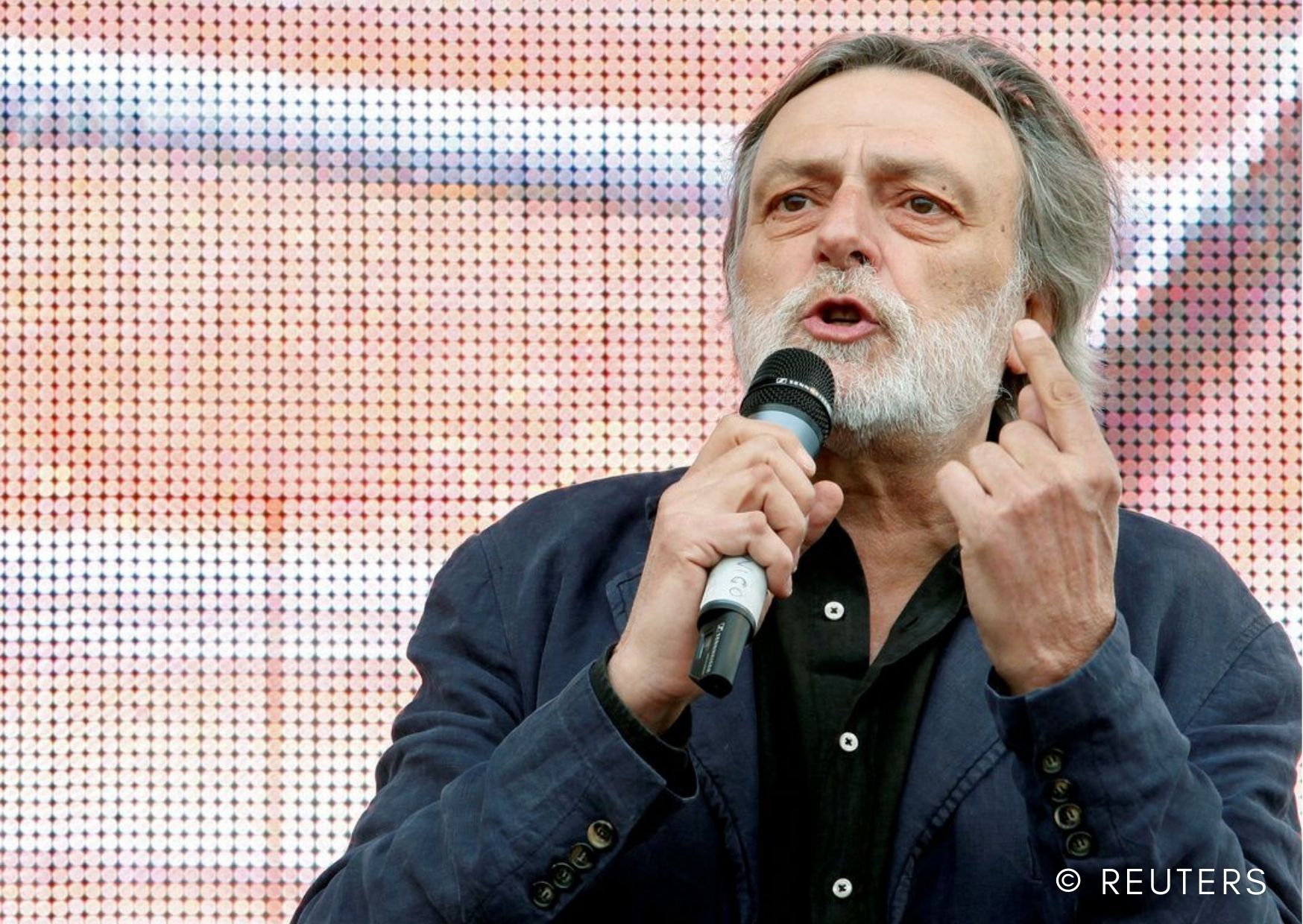
Italian charity founder and surgeon Gino Strada dies
Gino Strada, the founder of one of Italy\'s most prominent charities and builder of hospitals in war-torn countries, died on Friday aged 73, his medical charity Emergency said.A surgeon and anti-war activist, Strada founded Emergency in 1994 to help civilian victims, providing healthcare in conflict zones around the world, including Iraq and Afghanistan.He had recently suffered from heart problems, Italian media reported.Since its first project in Rwanda in 1994, Emergency has treated around 11 million patients, the group\'s website says, working in 19 countries to set up hospitals and healthcare facilities.A well-known public figure in Italy, Strada was sometimes touted as a possible minister, but his uncompromising anti-war and anti-racism ideas made him political enemies, especially on the right, and precluded him from office.\"He spent his life on the side of the weakest, working with professionalism, courage and humanity in the most difficult parts of the world,\" said Prime Minister Mario Draghi.A critic of most Italian governments over their immigration and defence policies, Strada opposed Rome\'s military involvement in Iraq and Afghanistan and became a symbol of the country\'s pacifist movements.His Twitter profile carries a quote from Albert Einstein: \"War cannot be humanised. It can only be abolished.\"Strada also decried Italian health policy, which he said favoured private clinics at the expense of quality public facilities for everyone.Strada published his last newspaper article in the daily La Stampa on Friday about the advance of Taliban insurgents in Afghanistan, a country where he spent seven years, fiercely criticising the United States and the western powers.\"We said 20 years ago that this war would be a disaster for everyone. Today, the outcome of that aggression is in front of our eyes: a failure from every point of view,\" he wrote.Strada\'s daughter Cecilia, a former president of Emergency, was not with her father at the time of his death because she was on board a boat rescuing migrants in the Mediterranean.\"I wasn\'t with him, but of all the places I could have been ... well, I was here ... saving lives. That\'s what my father and mother taught me\".
-
- 2,102
-
- 20 August 2021
-
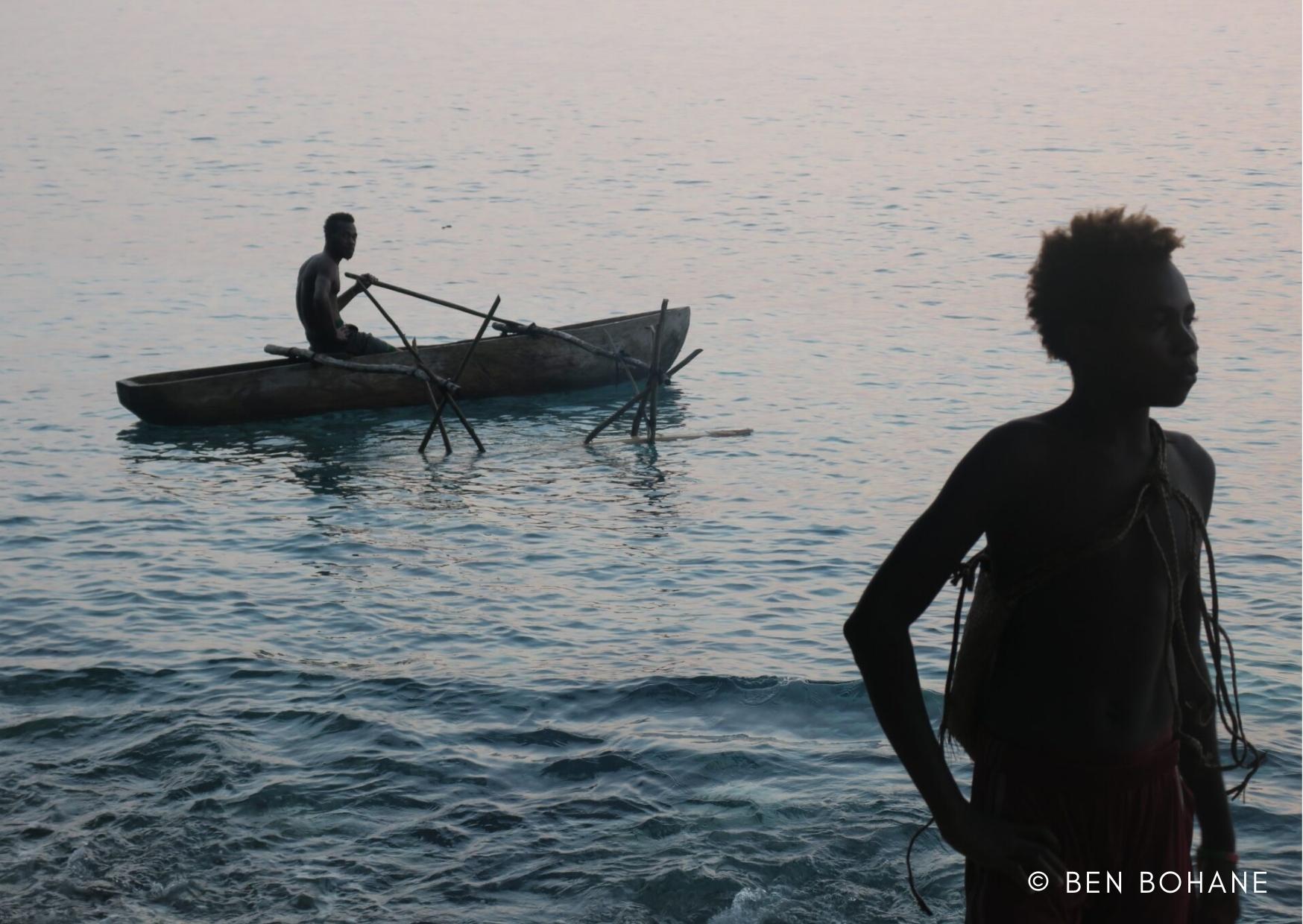
Pacific Wayfinder: Climate migration with dignity
Facing the prospect of rising sea-levels swallowing their homes, many Pacific leaders and scholars are preparing for the worst, Eliorah Malifa writes for the Pacific Wayfinder series.With the release of the Intergovernmental Panel on Climate Change’s latest report, the world is beginning to grapple with the implications of climate change. But while much of the rest of the rest of the world is slowly beginning to act, Pacific island communities do not have the luxury of time.For many years, Pacific leaders have amplified the human impact of climate change, and they are now looking for strategies to address the loss of lives, land, and livelihoods that is beginning to unfold.To explore how Pacific countries are preparing for the future,Head of the World Bank in Kiribati, Akka Rimon,and former President of Kiribati, Anote Tong, featured on the latest episode of the Pacific Wayfinder podcast.President Tong emphasised that nations like Kiribati are on the frontline and feel isolated – hence the need to take action themselves.“Now I’ve come to the conclusion that we will never be able to get the resources from the international community or any country in order to build the resources that we will need… we will one day have to relocate perhaps our entire population…we need to plan for it. And now I’m trying to encourage Australia and New Zealand to be partners in that,” he said.Witnessing increasingly severe wildfires and changing weather patterns around the world has reinforced the need for people in the region to consider what actions need to be taken if they are to protect themselves from inundation. Unfortunately, the future looks grim.Both Rimon and Tong agree on the need for Pacific communities affected by climate change to be able to migrate with dignity, should people be forced out of their homes by rising sea levels. Through her PhD research, Rimon specifically intends to draw lessons from Australia’s Pacific Labour Scheme and New Zealand’s Pacific Access Category.Rimon noted that without international law, robust loss and damage mechanisms, and recognition for climate-displaced persons, there is a real lack of protection available. However, she said that existing labour mobility schemes in Australia and New Zealand may be able to provide a blueprint for a future resettlement strategy.“We don’t want to sensitise the issue and say give us jobs because we’re sinking, no… we’re going to migrate with the trade skills and whatever talents that you are short of, so it provides a win-win both for the host country and the second [recipient] country,” she said.Given the international community’s lack of recognition for climate change displacement, the discussion around strategies for displaced persons and the ways to make these strategies attractive to receiving countries is complex.However, there is resistance to displacement planning in the region, with many of those in the firing line focusing on slowing the process through stronger international actions on reducing emissions. This attitude was evident at a recent youth lead climate march in Wellington, where protestors chanted “we are not drowning, we are fighting.” President Tong said that this is an “emotional response”.While he has historically fought for global action to slow the effects of climate change, he now believes leaders need to be ready to provide solutions for when the worst takes place.There is also discomfort in the fact that the region is largely suffering the consequences of others’ actions. The Pacific contributes approximately 0.03 per cent of global greenhouse gas emissions, yet Pacific Islanders are some of the first to experience the severe impacts of climate change.Rimon is one of several Pacific scholars emphasising that at-risk communities are seeking out strategies that allow for ‘displacement with dignity’, rather than being conceptualised as climate refugees.This conversation has been initiated by Pacific leaders and continues in earnest throughout the region. Through research into viable alternatives for resettlement of climate-displaced communities, leaders and scholars are planning for futures that are not desirable, but are becoming a reality.President Tong believes policymakers may have to “rewrite the rules” to come up with solutions that will accommodate people, such as those from Kiribati.“It’s like being in the Titanic movie. For countries like Australia in the lifeboat – will they let us onboard or push us off? We need some firm commitments… People are talking about cutting emissions, but we are well past that – we are gone. So how do we change the rules, change the narrative?”This may seem bleak, but the impact of inaction could be devastating. Communities in Kiribati and throughout the region may hope for the best but, given the speed of change, should prepare for the worst.This article is from our Pacific Wayfinder series, bringing you voices from the Pacific Island region. It is produced in conjunction with the Pacific Wayfinder podcast, produced by the Australia Pacific Security College.
-
- 1,931
-
- 20 August 2021
-
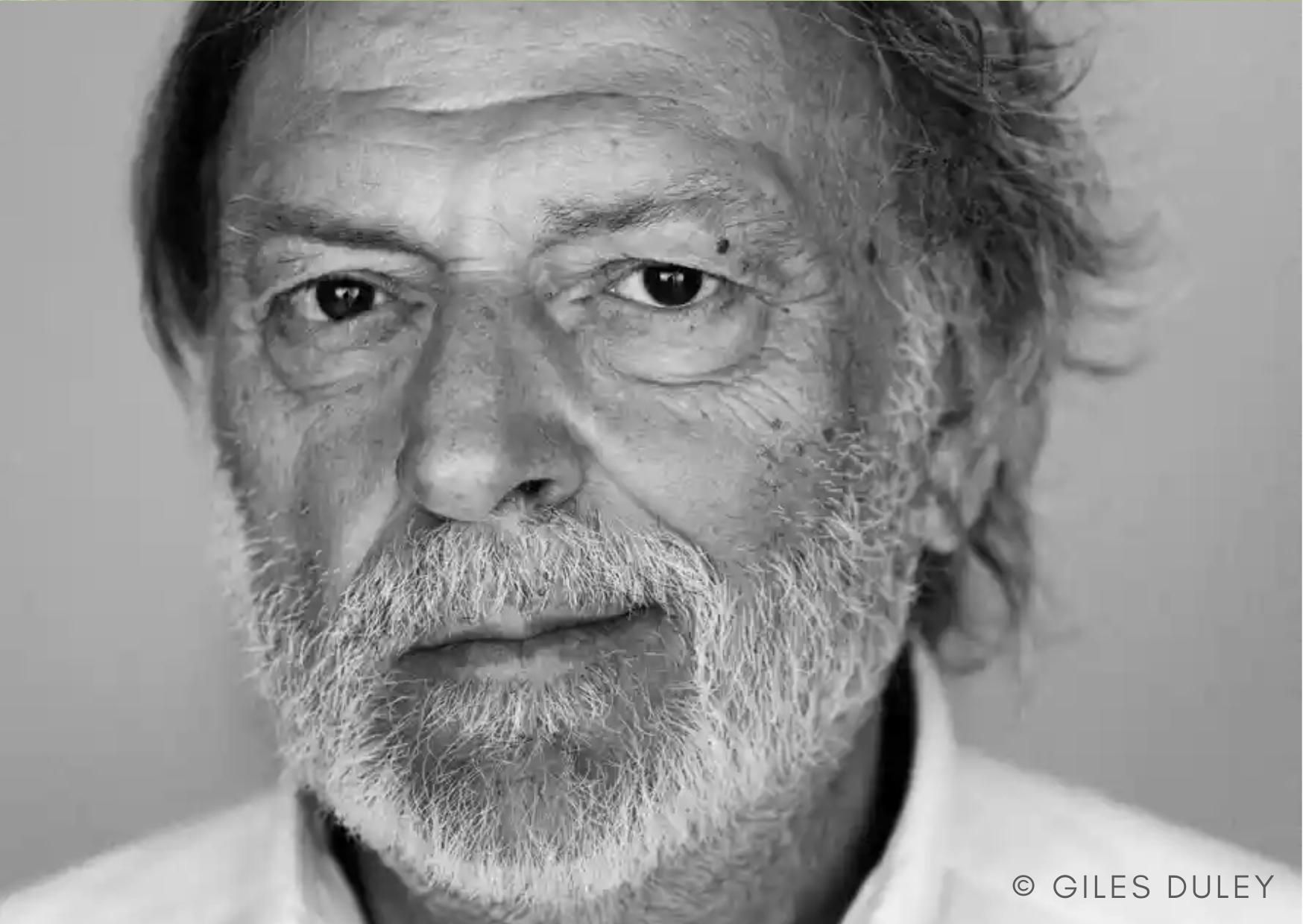
‘Maestro of humanity’: Gino Strada dies at 73
‘Maestro of humanity’: Italian surgeon Gino Strada dies at 73Tributes paid to doctor whose NGO set up world-class hospitals in war zones such as Iraq, Yemen and SudanTributes have been paid to Gino Strada, the Italian surgeon and “maestro of humanity” known for setting up world-class hospitals for the victims of war, who has died aged 73.The medic, who in 1994 co-founded the humanitarian organization Emergency to provide free, quality healthcare for those injured in conflict, died on Friday in France, reports said.Rossella Miccio, the chair of Emergency, said the news had come as a shock. “No one was expecting this. We are dazed and distressed,” she told Corriere della Sera. “It is a huge loss for the whole world. He did all he could to make the world a better place. We will miss him enormously.”A heart and lung transplant surgeon by training, Strada embarked on a mission to help heal those caught up in some of the world’s bloodiest and most intractable conflicts, including in Afghanistan, Iraq and Yemen.Emergency started its work in Rwanda during the genocide, and says it has gone on to treat more than 11 million people in 19 countries. The organisation currently operates in Afghanistan, where it has a world-renowned surgical centre, Eritrea, Iraq, Sierra Leone, Uganda, Yemen and Sudan, as well as Italy.Strada told the Observer in 2013 that the hospitals he set up needed to be at least equal to – if not better than – those in the west.“If you think of medicine as a human right, then you cannot have some hospitals that offer sophisticated, very effective, hi-tech medicine, and then go to Africa and think, ‘OK, here’s a couple of vaccinations and a few shots’,” he said. “Do we think that we human beings … are all equal in rights and dignity, or not? We say, ‘Yes, we are.’”The aim was, he said, to create facilities “that you would be happy to have one of your family members treated in”.Strada’s daughter, Cecilia Strada, said on Facebook that she had not been with him when he died, as she was onboard a rescue ship for the NGO ResQ – People Saving People.“Friends, as you’ll have seen, my father is no longer with us. I can’t reply to your many messages … because I’m in the middle of the sea and we have just performed a rescue,” she wrote. “And this I was taught by my father and mother.”Strada’s wife, Teresa Sarti, with whom he founded Emergency, died in 2009.In a statement, Mario Draghi, the Italian prime minister, praised Strada’s “professionalism, courage and humanity”, while David Sassoli, president of the European parliament, tweeted: “Farewell Gino Strada, maestro of humanity.”Renzo Piano, the Italian architect who designed a paediatric surgical hospital for Emergency in Entebbe, Uganda, said he had learned a lot from Strada, and that his death was “a big loss”.“He was one of these people with a simple, clear belief about science, about solidarity, human solidarity, even about beauty … Because he was one of those people who, talking about the hospital, it was about medical excellence, but it was also about environmental excellence and human excellence,” Piano told the Guardian. “It was kind of humanistic, I guess.”Piano said he had last spoken to Strada a few days ago, as the two men tried to find a way of getting to Uganda for the long-delayed inauguration of the hospital. “The hospital is already working,” he said. “But we never got the moment where [we] officially opened it. The other day we were discussing that: ‘could we try in October?’ It’s very sad.”Giles Duley first met Strada in 2010 at Emergency’s Salam centre for cardiac surgery in Khartoum, Sudan, documenting the surgeon’s work. Their relationship led in part to the photographer and activist going to Afghanistan the following year, where Duley was severely injured, losing both legs and an arm. It was also Strada’s influence, Duley said, that led to him setting up his own foundation, Legacy of War.“He was a man of principle and a man who believed in something,” said Duley. “We sadly live in a world now where few people really are principled. We’re surrounded by politicians who are not principled, and many NGOs lack that leadership.“There was a man who stood up and said what many of us believe: that the cause of so many problems in this world is war, and militarisation, and the profiting of conflict. And he stood up and said: this is what we have to stop.”On the last few occasions Duley saw Strada, he said, he had seemed tired. But he was never going to stop. “He dedicated his life to this work,” Duley said.“He was a man that had completely and utterly given himself to this. The last few times I met him it was obvious that that had taken a toll on him but there was no way he would ever retire or stop – this was his life, and he dedicated himself to people injured by conflict and those needing heart surgery around the world.”Strada had an opinion article in Friday’s edition of the Italian daily La Stampa excoriating the US war in Afghanistan, which he decried as a “failure in every possible way”.Paying tribute to the staff working in Emergency’s health facilities in the country, he wrote: “I cannot write about Afghanistan without thinking primarily of them and of the Afghans who are suffering right now, true ‘war heroes’.”
-
- 1,805
-
- 14 August 2021
-
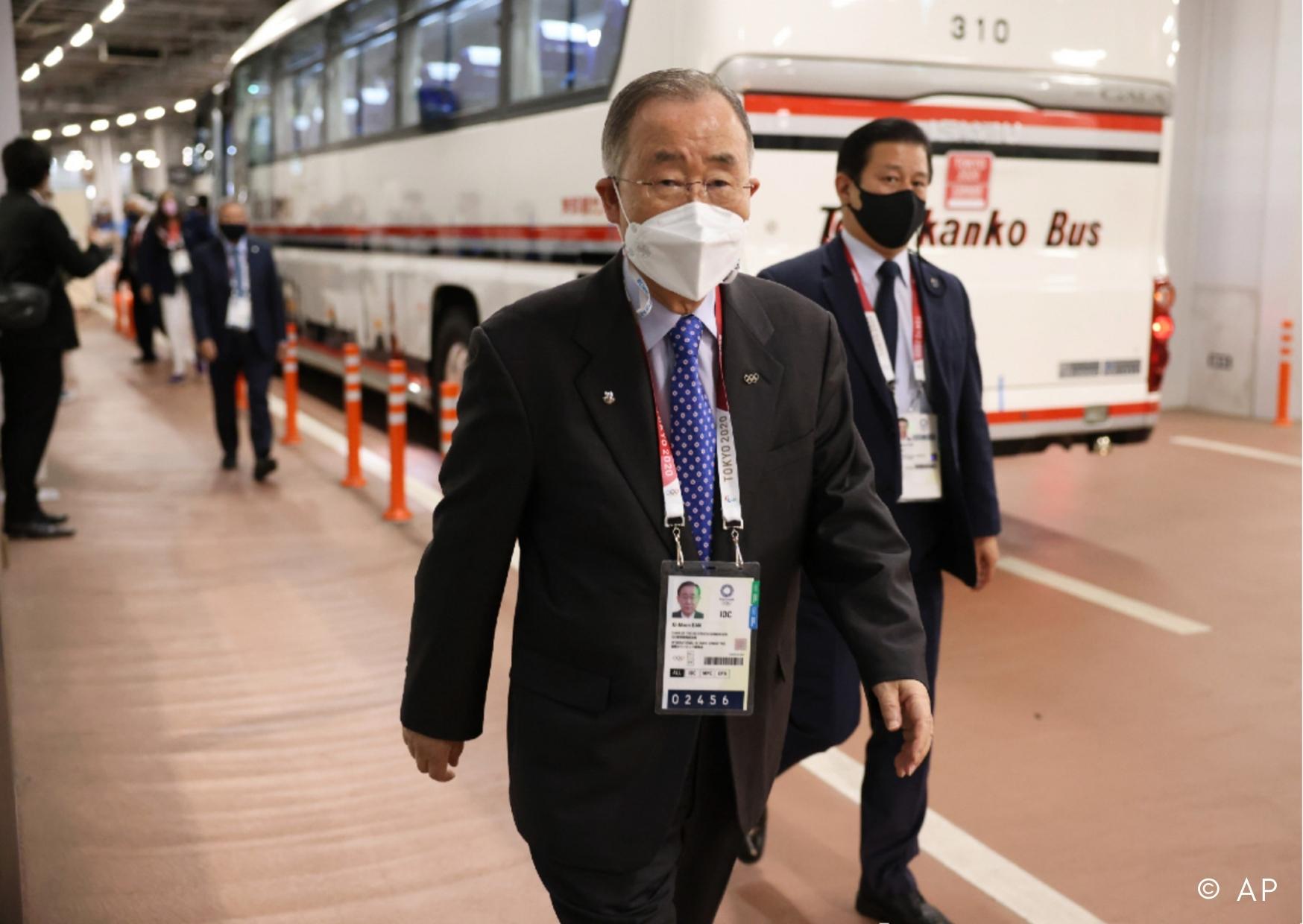
POLITICO Pro Q&A: Ban Ki-moon, former U.N. secretary-general
Ban Ki-moon led the United Nations from 2007 to 2016, an era that saw the rise of multilateral climate action culminating in the Paris Climate Agreement.Since leaving the U.N., he has used his leadership positions at civil society groups to continue his campaign against climate change. He founded the Ban Ki-moon Centre for Global Citizens in 2018 and is a deputy chair at The Elders, a multilateral convention of senior political and civic leaders brought together by Nelson Mandela. One of his driving messages is that the U.S. and other rich nations need to do more individually and collectively through the World Bank and other international institutions.His message is resonating. On July 22, U.S. Treasury Secretary Janet Yellen convened multilateral development banks to discuss how to align their portfolios with the goals of the Paris agreement and mobilize more private capital to combat climate change.Ban spoke with POLITICO. This interview has been edited for length and clarity.In your new book, you called climate activism one of your proudest moments. Why is that?Climate change has been approaching much, much faster than what we might have thought. Before I became the secretary-general, there were some science and climate skeptics from European countries like the United Kingdom. That really was a cold shower on our efforts. I really worked very hard to erase that kind of misperception. These days, nobody believes in climate skeptics because there have been so many unexpected natural disasters.Yet the skeptics remain.Particularly your President Trump, he was following the skeptics. His withdrawal from this hard-fought, hard-negotiated international agreement, the Paris Agreement, was very much irresponsible. I left the United Nations before his administration began, but I have been very critical that his decision was politically very short-sighted, economically irresponsible, scientifically very wrong. I warned that he will be standing on the cold side of history.I am very encouraged that President Biden has taken as his first presidential action to rejoin the Paris climate change agreement. People are now waking up. I was also encouraged by the G-7 countries, their meetings in the United Kingdom recently.You began this conversation in 2006, 2007. Did you think we\'d be further along by now?We are much better now than 2007. It was very difficult to [have a] dialogue with President Bush.I first met him in the White House, it was Jan. 16, 2007, if my memory serves me correct. I was warned by my staff, please don’t raise this issue. He’s not believing in climate change.I raised the subject and his immediate reaction was the U.S. is ready to do as much as China. He was pointing fingers at China.I invited him to a summit meeting. Of course, he agreed. Then he would not deliver his statement in the general assembly. That was embarrassing, very embarrassing. The president was in New York, participating in the United Nations General Assembly meeting but would not say anything.Bush later changed his position. He invited you to lunch just before he left the White House.Later on, after my retirement, I met him briefly on occasion and I really thanked him for his leadership on climate. It is a very interesting story. In the end, I got President Bush in this climate agreement.Fast forward to today. Is it time to ban financing and subsidies of fossil fuels, especially where the World Bank and IMF are concerned?I think it is necessary. There are many countries who have been financing [fossil fuels] through public financial organizations. Unfortunately, my own country, Korea, was one of them. I raised this issue very strongly with the office of the president of Korea and other ministers. Now Korea has decided not to provide any public financial support, except those which are now going on.I made a strong case that Korea must phase out all its 16 coal-fired power stations by 2045. That’s a policy now. I also recommended strongly that the old internal combustion engine cars must not be produced by 2035. It is now government policy.How do you assess the current situation globally?Unfortunately or fortunately, the Covid-19 crisis has made people realize much more seriously the importance of the interrelationship between climate and all these pandemics. Nature has its own way.Let\'s talk about the World Bank, the largest source of climate finance to developing countries. Are rich member nations stepping up? What should bank President David Malpass be doing?Mr. Malpass was critical of the World Bank before he was appointed as president and also because of his alignment with his boss, former President Trump. So there was some concern of how much the World Bank would be doing.Is the World Bank mobilizing enough money?Of course the World Bank is not printing money. I think they need to reach out to rich countries to contribute much more money. Without money, the World Bank has no power.What should Malpass do next?There\'s a lot of talk that we have to reduce greenhouse gas emissions, but you\'re not investing for the future wisely, investing in wise ways, in adaptive activities like infrastructure for small farmers, for water, green energy. For small island developing countries, even planting mangroves. It’s very small, but that will help.$100 billion was committed by the United States and Japan and European Union, and that has not been kept.You think the U.S. is not doing enough to help?That’s right. They must make up for the loss over the last four years. President Obama in 2014 promised $3 billion and paid $1 billion, and $2 billion is still pending. This is an outstanding $2 billion. The U.S. must, should lead this campaign, otherwise the European Union and other countries will not do it. I’m counting on your support.I’ll pass on that message.This is part of your responsibility, working together. I\'m a lone soldier now.Let\'s talk about the private sector. In the U.S. during the Trump administration, a lot of private companies made a lot of promises. Are they delivering?In fact, the private sectors are doing better and more than government. Government has their restrictions and laws and opposition parties. But corporations, when the owners, presidents or chairmen have conviction, they can do more.Business says it needs government leadership. In the U.S. for example, there’s resistance to massive spending and carbon pricing.We have to do twofold, threefold, tenfold investing in green energy, and make sure that the OECD countries raise their ambition by announcing a nationally determined contribution of 45 percent by 2030.Europeans are trying to lead this campaign, but my own country, Korea has not been able to do that. I’ve been in the process of trying to convince business sectors in Korea: Look, whatever you may do, if the European Union imposes a carbon tax by 2035, then whatever you manufacture, you will not be able to sell there. So it’s no use. You have to change.You’ve talked about your concern for your children.I have three children, two girls and one boy, but more important is I have four grandchildren, three granddaughters and one grandson. I am worried for them.It is us and our forefathers who have been abusing the privileges given by nature. I am also blaming political leaders. This is a sort of a presidential campaign period in Korea. I\'ve been watching the conversation today and no one is talking about it.Really? No one’s talking about climate change in the campaign?They’re talking, you know, housing prices. This is really disappointing.Has the world become more divided since you were secretary-general?On climate change they are more united. Because they have been hit, they are experiencing it by themselves. They know that climate change is now happening. At that time I was a lone voice speaking out. Convincing leaders was very difficult. One European leader I won’t name, he gave me a book about climate skeptics. He said he wrote it. Then when I was convening a summit meeting on climate, one environment minister of that country came to me and said, look, Mr. secretary-general, please do not invite my president. He will spoil your summit.I think most of the climate skeptics, they’re gone. Now people understand climate change is happening much, much faster. Pope Francis is a strong supporter. He issued his own decree.Yes, the encyclical. What did he tell you when you met him?He told me, \"God always forgives. Human beings sometimes forgive. But nature never forgives.\"
-
- 1,951
-
- 30 July 2021
-
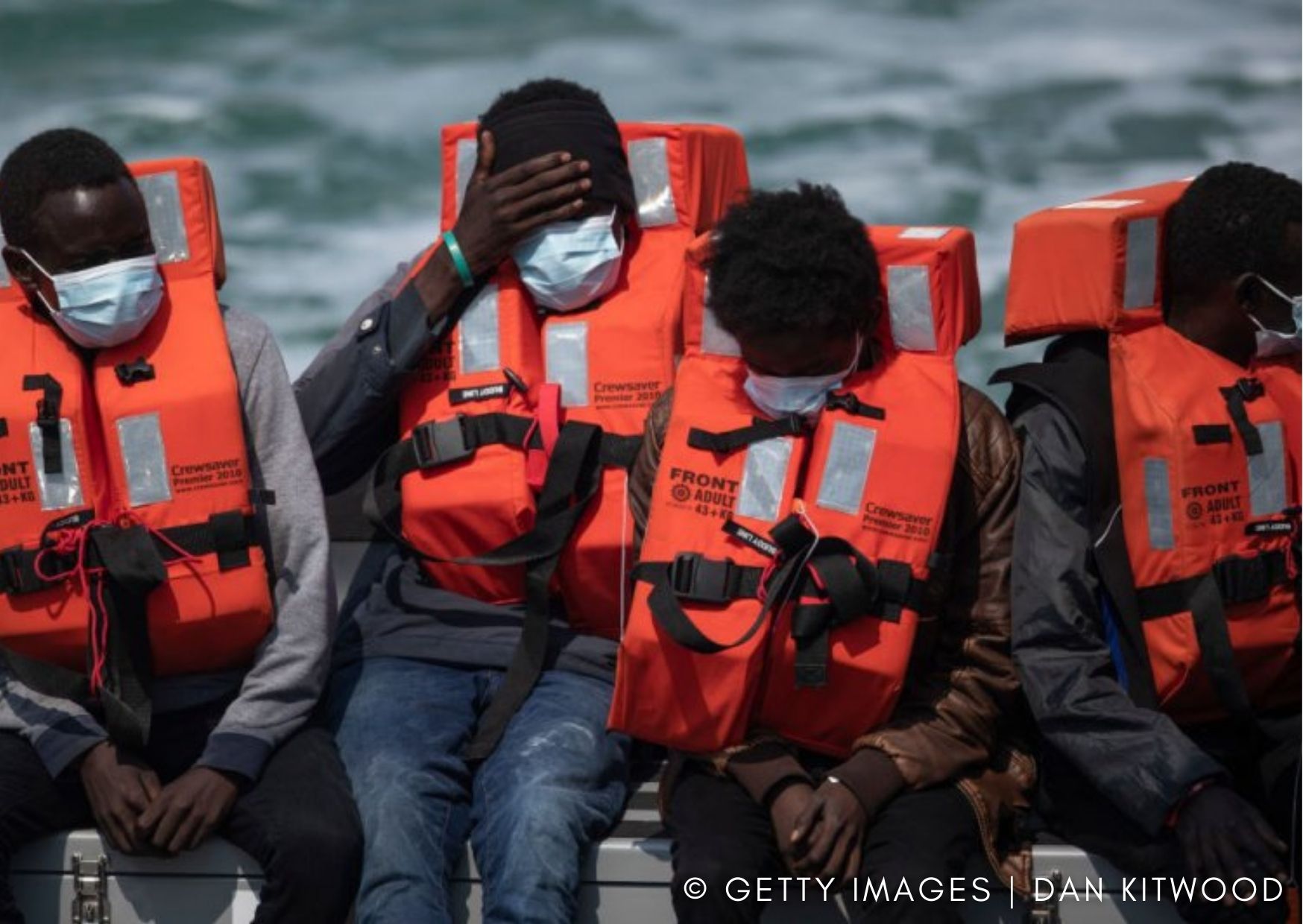
70 Years Ago, the World Made a Pact to Protect Refugees. Too Many of Our Leaders Are Failing to Upho
How the world treats refugees is a litmus test of our common humanity. I say that as a refugee myself, having experienced the trauma and wrenching displacement of fleeing my home during the Korean War, when I was a child. The human suffering that I witnessed as I fled my burning village with my parents has stayed with me throughout my life.It’s something that our leaders acknowledged 70 years ago this month, when the 1951 UN Refugee Convention was signed — a landmark treaty that has formed the backbone of international protection for people fleeing persecution in their own country, and should remain the lodestar guiding all national and international policies.The treaty is just as essential today as it was seven decades ago. The UNHCR’s latest Global Trends report found that a record 82 million people were forcibly displaced from their homes in 2020, including 26 million refugees who have fled their own country. These numbers are not going to decline as long as conflict and instability persist.Yet the guarantees in the 1951 Convention are being ignored. As forced displacement reaches unprecedented levels, the reaction in many prosperous countries in the Global North continues to be driven by fear and self-interest. Populist, nationalist and sometimes openly racist politicians have manipulated people’s fear and ignorance of refugees for electoral gain, leaving refugees and migrants even more marginalized and vulnerable to abuse, including physical attacks.Instead of offering protection, some of those in power want to shut down asylum routes, introduce punitive measures against those exercising their right to seek asylum through irregular routes, and forcibly return people to situations of uncertainty.Over the last five years, Afghan refugees whose asylum claims have been rejected have been forcibly returned to Kabul from the Netherlands, Sweden, Germany, Austria and Finland, during periods of acute insecurity and war. The threat of a renewed takeover of Afghanistan by the Taliban will create a further surge of refugees, including women and girls who face the brutality of that regime.Denmark is currently reassessing the temporary residency permits for Syrian refugees who originate from Damascus and its environs, stating it is now safe to return to those areas despite the repressive nature of the Assad regime.Other countries don’t even let displaced people stay within their borders while they seek asylum. Australia maintains its longstanding discriminatory policy towards refugees and asylum seekers who arrive irregularly by boat, forcibly transferring and detaining them in Papua New Guinea and on Nauru island. It has had a devastating impact on the physical and mental health of those individuals and families. This type of policy is an affront to human dignity.The U.K.’s new Nationality and Borders Bill also provides for off-shoring of asylum-seekers, following the damaging path set by Australia. It further proposes a two-tier system which would discriminate against those who arrive through irregular routes, even if their asylum claim is successful, effectively condemning them to a life of limbo with reduced rights. If implemented, the proposals would set a dangerous precedent in Europe – one which other European states should firmly reject.Such measures, designed to avoid or shift responsibility, are contrary to the 1951 Convention, the Global Refugee Compact and core principles of global responsibility-sharing and solidarity.The Global North’s regressive asylum policies stand in stark contrast to the generosity of developing countries, who continue to host 86% of the world’s refugees. For example, in February 2021, Colombia granted a 10-year protection status to 2 million Venezuelan refugees and migrants in the country, enabling them to integrate and plan for their future. Such examples put wealthier countries to shame.It is incumbent on these countries to step up and deliver a global resettlement programme on a meaningful scale. President Biden’s decision to restore U.S. resettlement levels with a goal of 125,000 in the next fiscal year is a welcome development. The Elders support UNHCR’s call for the E.U. to commit to meet at least 40% of the global target to resettle 1 million refugees by 2028, equalling a pledge of 36,000 for 2022. This should be followed by setting ambitious multi-year targets in line with this commitment.When I was U.N. Secretary-General, I met so many children around the world, particularly in Africa and the Middle East, who reminded me of my own painful experiences as a child displaced by war. For them, and for so many others, I remain determined to keep the plight of refugees high on the global agenda.
-
- 1,917
-
- 30 July 2021
-
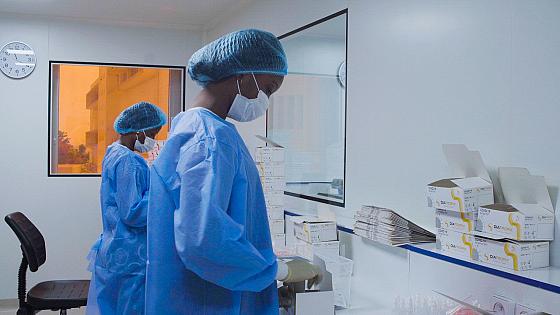
Republic of Senegal and Team Europe agree to build a manufacturing plant to produce vaccines against
Producing COVID-19 vaccines in Africa came one step closer today after Team Europe formally agreed to support large-scale investment in vaccine production by the Institut Pasteur in Dakar, alongside other support measures. The new manufacturing plant should reduce Africa\'s 99% dependence on vaccine imports and strengthen future pandemic resilience on the continent.The agreement is part of a major package of investment in vaccine and pharmaceuticals production in Africa launched by Team Europe in May, which brings together the European Commission, EU Member States, and the European Investment Bank, and other financial institutions, in line with the EU\'s Strategy with Africa and the strategy of the Africa Centres for Disease Control and Prevention (Africa CDC) and the Partnerships for African Vaccine Manufacturing (PAVM).Team Europe, together with other international partners, has committed to a significant package of support for the medium- to long-term sustainability of the project. This includes: Germany\'s Federal Ministry for Economic Cooperation and Development (BMZ) is supporting the manufacturing hub in Senegal with a €20 million grant through KfW (Kreditanstalt für Wiederaufbau), the German development bank.France, through the Agence Française de Développement (AFD), has already granted two initial financing packages totalling €1.8 million to the MADIBA project (Manufacturing in Africa for Disease Immunization and Building Autonomy) at the Pasteur Institute in Dakar for feasibility studies and initial investments. The AFD Group and its private sector subsidiary, Proparco, are also working within the group of technical and financial partners to structure the project in order to reach financial support at a larger scale.Belgium will support Senegal in structuring initiatives to produce vaccines and pharmaceuticals, such as the Pharmapolis pharma hub. Belgium also welcomes the fact that a Belgian biotech company in novel bio-manufacturing platforms is forging, with the support of Wallonia, a partnership with the Institut Pasteur in Dakar, as a key partner for building capacity and transferring technology.The European Commission is discussing with the Senegalese authorities the possibility of mobilising further financial support by the end of 2021 under the new NDICI / Global Europe instrument to support this project. This is part of the €1 billion Team Europe initiative to boost the manufacturing of, and access to, vaccines, medicines and health technologies in Africa, which European Commission President Ursula von der Leyen announced in May 2021.At a ceremony at the Presidential Palace in Dakar, the President of the Republic of Senegal, His Excellence Macky Sall, European Commissioner for the Internal Market Thierry Breton and representatives of Germany, France, Belgium, the European Investment Bank and other development finance institutions, including the IFC, today confirmed details of Team Europe support to accelerate project preparation, expand manufacturing capacities and undertake technical feasibility work. These will be crucial to unlock large-scale investment in the new plant. This will be built over the next 18 months and will equip the African continent with a state-of-the-art facility for the production of authorised COVID-19 vaccines.Today, Team Europe is providing €6.75 million in grant support to enable technical feasibility studies and project preparation for the new facility at the Institut Pasteur in Dakar. This amount includes €4.75 million from the European Commission and the European Investment Bank, €200,000 from Germany, and €1.8 million from France. This will also enable the total investment cost and financial structures to be defined and agreed with Senegalese and international partners. Construction of the new plant is expected to start later this year, with 25 million vaccine doses being produced each month by the end of 2022.
-
- 1,818
-
- 15 July 2021
-
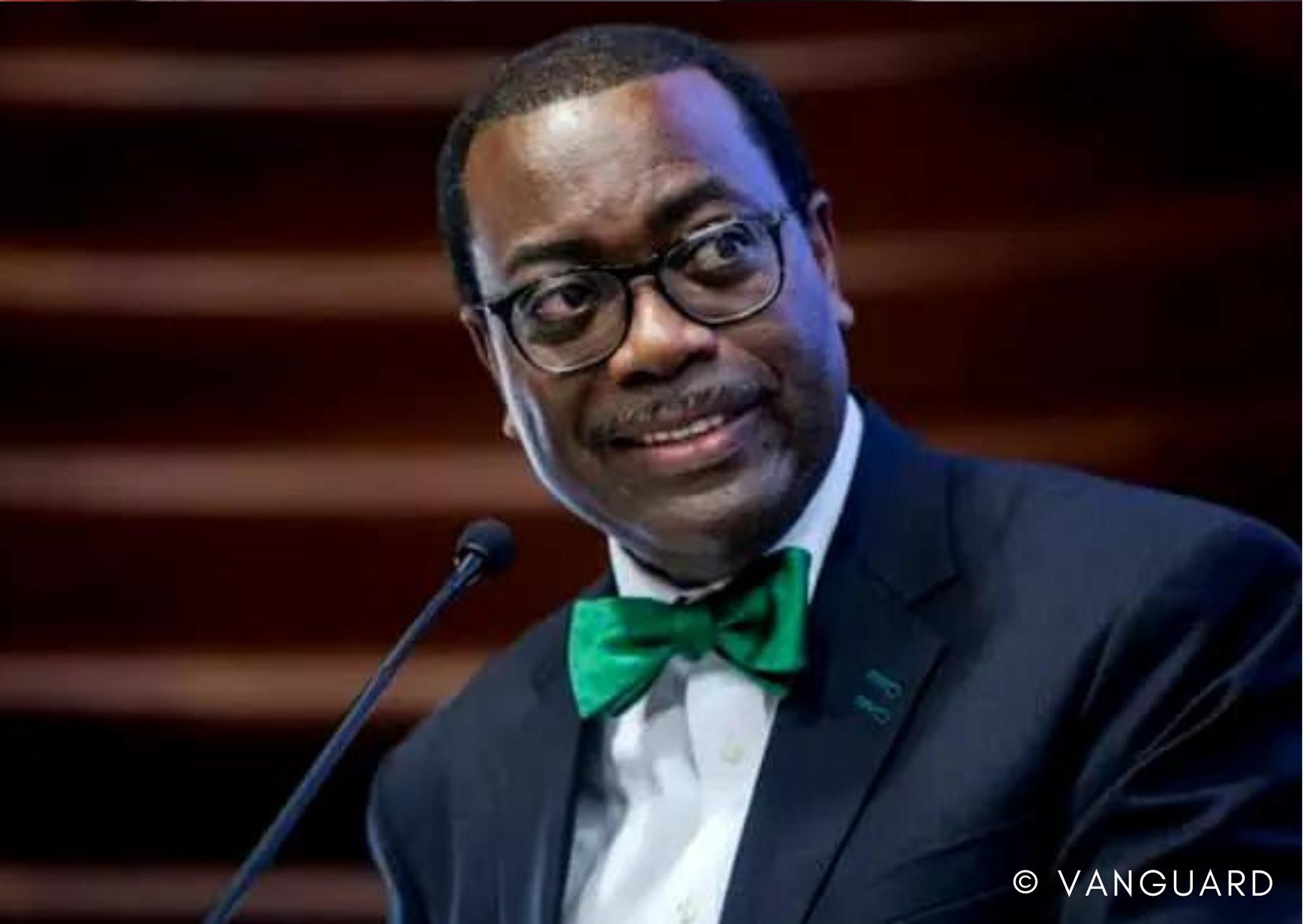
Nigeria’s diversity, its strength for economic prosperity, says AfDB President, Akinwumi Adesina
‘Nigeria’s youth must be turned into a first-rate, well-trained workforce’The President of the African Development Bank, AfDB, Dr. Akinwumi Adesina, has said that Nigeria’s diversity is not its problem, but rather how it’s managed for economic growth and development.Adesina shared his thoughts on what it will take to rebuild Nigeria and put it on a path to greatness in a keynote address at the convocation ceremony of the American University of Nigeria in Yola, Adamawa State capital.Citing Singapore as an example that has successfully managed ethnic, linguistic and religious diversity, Adesina said diversity is strength and not weakness.According to the AfDB President, Nigeria’s future rests on what it does now with its vibrant youth population.In the keynote titled “Building a New Nigeria: Imperatives for Shared Prosperity,” he said: “For Nigeria to be all that it can be, the youth of Nigeria must be all that they can be.He emphasized that Nigeria’s future development and growth hinged on transforming the country’s youth demographic advantage into a world-class and well-trained workforce for the country, region, and world.He urged stakeholders to prioritize investments in the youth, and up-skill them for future jobs, as well as shift from policies of “youth empowerment” to “youth investment”.According to Adesina, this would also help open social and political spaces for youth to air their views, become a positive force for national development, and ensuring the creation of youth-based wealth.“From the East to the West, from the North to the South, there must be a transformative change in economic, financial, and business opportunities for young Nigerians,” the Bank President told the large gathering.“The young shoots are springing up in Nigeria. Today, Lagos has its own Silicon Valley. Yabacon Valley has emerged as one of the leading tech hubs in Africa with between 400 and 700 active start-ups worth over $2 billion, second only to Cape Town.Citing examples of entrepreneurial success among young Nigerians, he noted that “Andela, a global technology start-up based in Yabacon Valley, recently attracted $24 million in funding from Facebook founder Mark Zuckerberg.The $200 million investment by Stripe (a Silicon Valley firm) in the local payments company Paystack, and $400 million into three Fintech companies in just one week in 2019 signals the huge potentials of Nigeria to attract global digital commerce and financial services.“The African Development Bank is currently working on a $500 million programme, Digital Nigeria, which is designed to transform Nigeria’s digital competitiveness and build on the incredible entrepreneurship of Nigeria’s youth.“The Bank is also exploring the establishment of Youth Entrepreneurship Investment Banks- financial institutions for young people, run by first-rate young bankers and financial experts, to drive youth-wealth creation,” he told participants.“Nigeria is blessed with incredibly rich diversity: of people, of cultures, of religions, of mineral resources, oil, and gas, amazingly rich biodiversity, that should make us the envy of the world.“We are blessed with abundantly diverse agro-ecologies, that should also make us a land of bountiful harvests with the capacity to feed Africa. Nigerians deserve wealth, not poverty,” he added.Students from all around Nigeria, as well as international students from South Africa, Cote d’Ivoire, Rwanda, Cameroon, India, and Romania, make up the American University of Nigeria’s class of 2020 and class of 2021.In his concluding remarks, Adesina urged the graduating class to make a difference in their sphere of influence, Nigeria and the world.“I have a dream that we will arise, from our challenges, and build a more prosperous and united nation,” Akinwumi Adesina prophesied.
-
- 1,808
-
- 15 July 2021
-
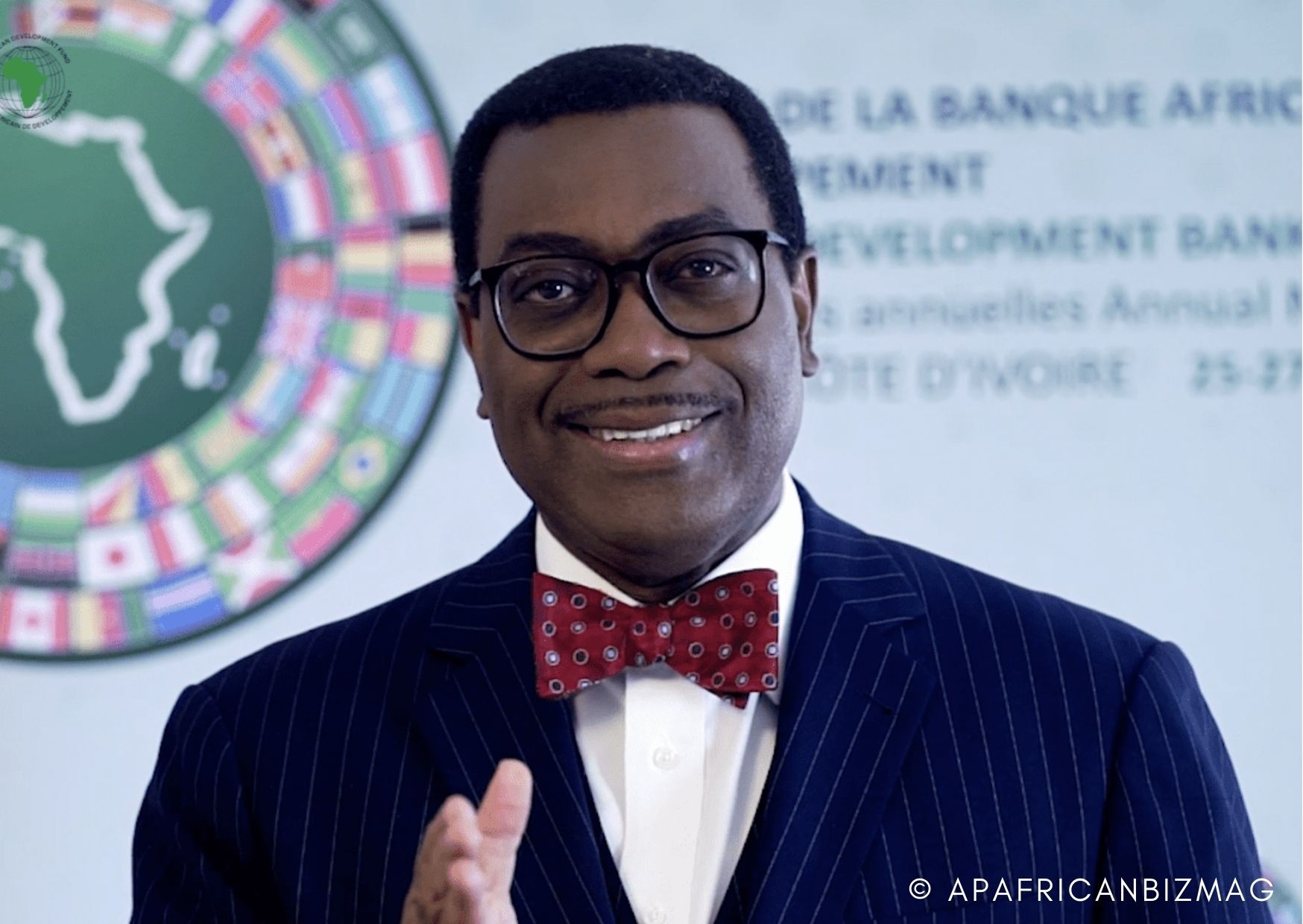
‘Africa is at ground zero,’ Adesina calls for support at US’ climate summit
The President of the African Development Bank, Akinwumi Adesina, has called for global support for Africa to move towards net-zero at the ongoing Leaders Summit on Climate convened by the President of the United States of America, Joe Biden.He made this call while participating in a panel session on how combined public and private finance can be galvanized to accelerate the move to a net-zero economy.“To be sure, climate change is a threat to Africa. The continent loses 7-15 billion dollars per year to climate change, and this will rise to 50 billion dollars per year by 2040 according to the IMF. Africa, the least emitter, suffers the worst of the impacts of climate change including droughts, floods, locust and pest invasions.“Africa is not at net-zero, Africa is at ground zero. We must, therefore, give Africa a lift to get a chance of adapting to what it did not cause,” he said.He also talked about how the African Development Bank is leading this charge to support Africa.According to him, “we have committed 25 billion dollars to climate finance over the next four years, our share of financing devoted to climate rose from just a mere 9% in 2016 to 35% in 2019 and we will reach 40% in 2021, this year. We are also setting the pace… African Development Bank is the only multilateral development bank to meet and exceed the 50% parity for climate adaptation and resilience. Indeed we devoted 50% of our climate finance to climate adaptation and resilience in 2018 and last year we increased that to a record 63%.”“We are climate-proofing Africa,” he added. “The bank is targeting 40 million farmers with climate-smart agricultural practices. We are also speeding up Africa’s energy transition to renewable energy. We help to support the largest wind power plant in Africa in Kenya. And now we have embarked on what we now call desert to power. A 20-billion-dollar investment that would provide opportunities to turn the Sahel into the world’s largest solar zone and provide electricity for 250 million people.”“We are securing the future of the Sahel. We have pledged 6.5 billion dollars towards building the great green wall in the Sahel to protect against desertification. We are deploying our Africa disaster risk facility to help countries to pay for insurance premiums against catastrophic climate events. We are also building strategic partnerships in particular with the Global Centre for Adaptation. And together we have created and launched the Africa Adaptation Acceleration Programme.”“Our goal is to mobilize 25 billion dollars for the programme exclusively for scaling up actions on climate adaptation. Just three weeks ago, thirty African heads of states, global leaders including the UN secretary-general, Guterres, joined forces to back this African Adaptation Acceleration Programme.”
-
- 1,660
-
- 23 April 2021
- Sunhak Peace Prize
-
Future generations refer not only to our own physical descendants
but also to all future generations to come.Since all decisions made by the current generation will either positively
or negatively affect them, we must take responsibility for our actions.

